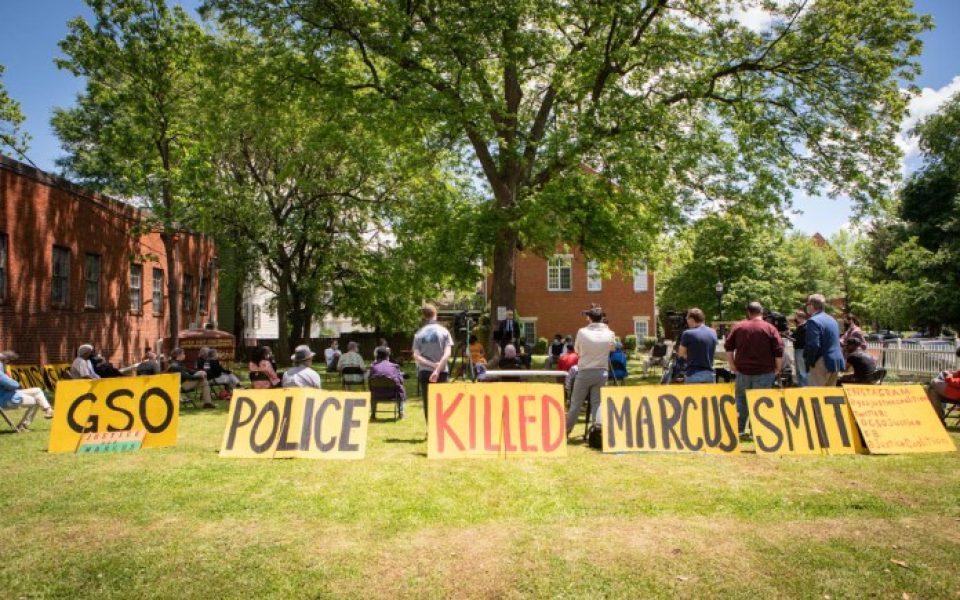The case file for Smith v Greensboro, the civil action that Marcus Smith’s survivors initiated after he was killed by Greensboro police in 2018, contains 235 individual documents. The first, filed April 10, 2019, is an 18-pager that distills the Smith’s terrible demise into more palatable legalese.
The last, probably, was filed on Monday: an order from US District Court Judge Loretta C. Biggs that permanently seals some of the evidence and testimony from the case: depositions and other testimony, body-camera footage, emails, the criminal investigation file and other discovery items that the public will never know about.
The documents in between tell the tale of a man killed by agents of the city, defendants’ efforts to minimize their accountability and, ultimately, the judgment for the plaintiffs and settlement, which was $2.57 million, awarded to his survivors.
As this chapter ends — for us, anyway; Smith’s murder will always be a part of his survivors’ story — it’s an appropriate time to take stock in what we’ve learned.
One takeaway is something we all already know: Sometimes police kill citizens through gross negligence and outright violence, and when they do, pretty much nothing happens to them. In fact, seven of the eight officers responsible for hogtying Smith — which was the cause of his death — got merit raises last year. And a condition of the settlement is that none of the defendants must admit liability.
One positive outcome is that GPD can no longer use the hogtie restraint, known as RIPP hobble, on the people they’re supposed to protect, putting them in line with every other law enforcement agency in the Triad.
We’re also reminded how expensive it is when police kill people. In addition to the $2.57 million settlement, the city spent more than half a million dollars defending their indefensible case. It’s less than one percentage point of the city budget, but it is more than five times the total of the city’s participatory budgeting initiative.
In addition, $10,000 of the settlement will go to the Interactive Resource Center, for a plaque commemorating Smith and his time at the homeless day center, the last reminder of a life snuffed out by the very people who were supposed to help him.
Join the First Amendment Society, a membership that goes directly to funding TCB‘s newsroom.
We believe that reporting can save the world.
The TCB First Amendment Society recognizes the vital role of a free, unfettered press with a bundling of local experiences designed to build community, and unique engagements with our newsroom that will help you understand, and shape, local journalism’s critical role in uplifting the people in our cities.
All revenue goes directly into the newsroom as reporters’ salaries and freelance commissions.


Leave a Reply